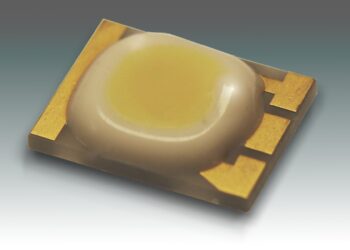In a bid to meet the increasing demand for synchronized and accurate timing solutions across various industries, Microchip Technology Inc. (Nasdaq: MCHP) has unveiled the 5071B cesium atomic clock. This cutting-edge clock offers autonomous timekeeping capabilities for extended periods, even in the absence of Global Navigation Satellite Systems (GNSS). The clock’s remarkable holdover feature ensures precise timing of up to 100 nanoseconds for more than two months, making it an ideal solution for critical applications in telecommunications, data centers, metrology, aviation, and defense.
GNSS, commonly relied upon for precise time and frequency synchronization, is vulnerable to jamming and spoofing attacks. Microchip’s 5071B cesium atomic clock addresses this concern by providing a dependable long-term timing and frequency solution that can operate autonomously during GNSS denials. Unlike its predecessor, the 5071A, which has served as the global time and frequency standard for over 30 years, the 5071B comes in a compact three-unit height (3U) 19-inch rackmount enclosure, offering portability and enhanced security for various working environments.
To ensure longevity and compatibility with modern systems, the 5071B incorporates upgraded electronic components, eliminating concerns over obsolescence and non-RoHS circuitry. This next-generation cesium clock boasts exceptional stability with no long-term frequency drift, providing an absolute frequency accuracy of 5E-13 or 500 quadrillionths under specified environmental conditions throughout its lifespan. The clock’s stability is particularly advantageous for military applications, eliminating the need for external synchronization sources prior to radiating in system radars. In satellite communications, the clock’s stability enables uninterrupted transmission over narrow frequency bands, ensuring optimal performance throughout the product’s duration.
The 5071B’s significance extends to critical sectors such as aviation, where it can greatly enhance communication and synchronization between aircraft and control towers. In the United States, air traffic control heavily relies on systems like Automatic Dependent Surveillance-Broadcast (ADS-B) and Wide Area Multilateration (WAM) to accurately track aircraft positions across the nation’s airspace. With the 5071B’s exceptional stability, these systems can continue operating seamlessly even during GNSS outages, ensuring precise and reliable air traffic control.
Randy Brudzinski, Vice President of Microchip’s frequency and time systems business unit, expressed confidence in the 5071B’s capabilities and the company’s position as an industry leader in complex timing solutions. He emphasized that customers can depend on the clock’s technology for years to come, providing a reliable timing and frequency solution with a continuous supply of modern components.
In line with global regulatory standards, the 5071B cesium atomic clock is fully compliant with the Restriction of Hazardous Substances Directive (RoHS), enabling its availability in regions with corresponding policies.
Microchip Technology Inc. is renowned for its extensive portfolio of clock and timing systems, built on the company’s rich heritage and expertise in synchronization and timing technologies. Supporting the 5071B cesium atomic clock is the Clockstudio Software Tool, which offers comprehensive control and monitoring capabilities for seamless operation.
The 5071B cesium atomic clock is now commercially available in two performance levels, 5071B-001 and 5071B-002, housed in a compact 3U 19-inch rackmount enclosure. For further information or to make a purchase, customers can contact a Microchip sales representative or authorized distributor.








